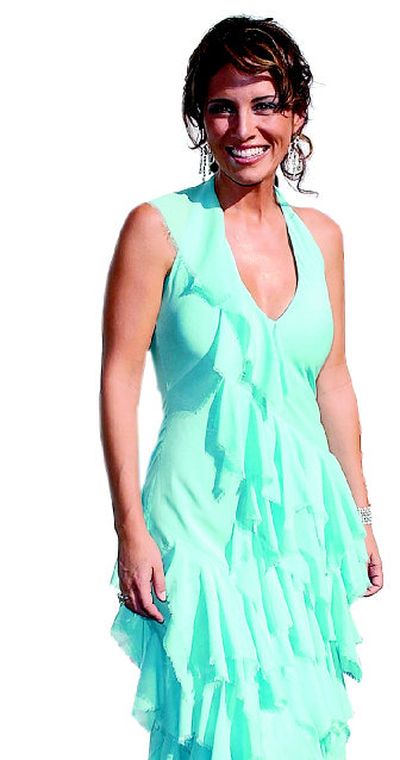Latin singer spreads breast cancer awareness

Colombian singer-songwriter Soraya wants to give hope to women with breast cancer.
She survived, she says. They can, too.
“I can be their voice,” Soraya said.
The 36-year-old Latin Grammy-winner especially wants to break the code of silence among Hispanic women that often prevents them from seeking timely treatment.
This year, an estimated 211,240 women in the United States are expected to be diagnosed with breast cancer. An estimated 40,410 women will die from it, according to the American Cancer Society.
Soraya’s mantra is clear: Early detection is key, treatments are advancing, and support systems do exist.
“It’s better to know early on when you have lots of options,” she said.
Soraya’s mother, aunt and grandmother died of breast cancer. In 2000, when she was diagnosed with advanced breast cancer, she wanted to keep her story private.
But the letters and e-mails she received changed her mind. She heard from women who said they feared treatment because every woman they knew who got treatment had died. Others said if they had a mastectomy, their husbands would leave them.
She knew she had to speak out through the media and through her music.
“I am not going to be part of the problem,” Soraya said. “I am not going to be part of that tradition.”
Soraya, who lives in Miami, is a spokeswoman for the Susan G. Komen Breast Cancer Foundation and during September and October takes a break from her music career to focus on breast cancer awareness.
Ines Rodriguez, a breast cancer survivor and oncology nurse from Davie, Fla., said Soraya is her role model.
“She opened the door that few people had even knocked on,” said Rodriguez, 44.
Like Soraya, Rodriguez talks about her experience everywhere she goes.
Dr. Sandra Franco, co-director of the Memorial Breast Cancer Center at the Memorial Cancer Institute in Hollywood, Fla., and Pembroke Pines, Fla., said some patients who grew up in Latin America fear diagnosis and treatment.
“There is a feeling in these patients that breast cancer is a more deadly disease than it really is,” said Franco, who is Colombian.
Latin American countries don’t have massive breast cancer screening campaigns. Treatment, drugs and support groups are less available than in the United States, she said. The message about early detection isn’t trumpeted. In Colombia, 80 percent of the cancers diagnosed are at an advanced stage, Soraya said.
“That’s crazy,” she said. “That’s what we are trying to stop. We are trying to get the message of early detection out there.”
In the Hispanic community, people don’t openly talk about cancer, and that’s where Soraya can make a difference, Franco said. People will listen to her, she said.
“If there were more campaigns, more media involvement, more celebrity involvement like with Soraya, it would be normal to talk about breast cancer,” Franco said. “The stigma would go away.”
Rodriguez, who is Cuban, said that while she was recovering from her mastectomy, her aunts tiptoed around her, lamenting her condition in whispers.
That’s not her style.
On her 41st birthday – two days after her operation – she painted her lips with Jezabel Lancome red and wore a rhinestone tiara. She ended up consoling her visitors.
“I was so sick of the long faces,” Rodriguez said.
Now she is establishing a Broward, Fla., support group, Your Bosom Buddies, and a Broward mentorship program, A Buddy for You. Those programs are affiliated with the national Komen Foundation.
Fellow survivor Susana “Susi” Reinstein said older Hispanic women resist breast cancer screening and treatment.
“They were taught you don’t share parts of your body,” said Reinstein, who is Argentine. “You don’t discuss parts of your body.”
But, Reinstein, 52, said she finds attitudes are changing among younger women.
The Pembroke Pines resident participates in Reach to Recovery, an American Cancer Society program that pairs survivors with people who have been diagnosed. She also volunteers with Look Good … Feel Better, a program that helps cancer patients with beauty techniques.
“I think I was given cancer for a purpose,” she said. “My purpose is for me to give back.”
Women with breast cancer have latched onto a Soraya song called “Almost” or “Casi” in Spanish, Soraya said.
But her survivor song is “No One Else” or “Por Ser Quien Soy” in Spanish.
“It’s a song that talks about that moment when you take a deep breath and you realize you are breathing again and you realize that you are alive,” Soraya said.
“You are still here. You take the good with the bad, but at the end of the day what matters is that you are still here.”